Even Your kids will approve!
This recipe almost became Vegan friendly, but I used honey as one of my ingredients which would disqualify it as vegan. While searching for regular yogurt starter culture, I came across this vegan starter culture* and decided to give it a try. I’ve made many batches of regular yogurt over the years and confidently thought, what could go wrong?! (insert facepalm emoji here!)
*Good To Know*
- What’s the difference between coconut milk and coconut cream? Technically, both are the same except cream has a higher concentration of fat and protein than water (whereas coconut milk has the opposite). In coconut milk, you can scoop the layer of cream from the surface after the can has been refrigerated (with coconut water underneath it). Coconut milk has more water than fat and protein. Another way to explain this is to compare it to cow’s milk. Coconut cream is similar to heavy cream and coconut milk is similar to 3.25% M.F. homogenous milk.
- Can I use other thickeners besides Tapioca starch? My first batch of coconut yogurt was made with gelatine. Technically, it thickened the yogurt, however the consistency was congealed yogurt instead of the smooth, creamy texture I was after. You could try cornstarch instead of tapioca (but I have not tested this) and to be on the safe side, recommend to stick with Tapioca starch since yogurt making can become frustrating really quickly if it doesn’t turn out the way you wanted it to after patiently waiting for it to incubate & chill for 14 hours total.
- Can I use other berries or fruit to make the fruit bottom? Absolutely! Just make sure when you cook your fruit, you want it to boil to a jam consistency (or close to it anyway). Let most of the water/ juice evaporate and thicken. This ensures that when you mix the fruit bottom with the yogurt, it does not become too runny due to the liquid in the fruit bottom.
- Does this have to be cooked in an Instant Pot? This recipe was tested using an Instant Pot. However, if you apply the same steps with a regular saucepan to heat the milk and then cultivate it in a yogurt maker, it should work too.
- How long does coconut yogurt last in the refrigerator? It can last up to 2 weeks if stored covered in the refrigerator properly (ideally at 4 degrees or below). Best consumed within 10 days for optimal flavour.
- What else can I use this yogurt for? Your options are endless (use it in place of regular dairy yogurt.) Some suggestions:
– Fruit Breakfast Bowls (add granola, nuts, fresh fruit, dried fruit) – Yogurt Parfait – Use in Curries – Smoothies
How to failproof coconut yogurt
So, this one took me 2 tries. My first batch of yogurt turned out a little too congealed because I used gelatine. At first, I didn’t think it would set once refrigerated because it seemed too runny in the Instant Pot, so I only tested 2 jars with my first batch of coconut yogurt (and dumped the rest. Another reason for you to avoid frustration because I’m doing that for you!). I’m not one to give up, so when my first attempt failed. I tried a second time but with Tapioca starch and additional coconut cream powder. Voila! The consistency was smooth, rich and delightful with the blueberries! By the way, patience and time are the biggest ingredients here but I promise, so worth the wait!
The biggest component to keep in mind is that your heated milk needs to be exactly 110°F (43.3°C). It’s the right temperature to activate and cultivate the starter bacteria in your yogurt. Too hot and it will kill the bacteria, too cold and it will be too runny / won’t give you the tangy yogurt flavour. Dairy-free yogurt needs to have a thickener added as it won’t thicken on its own, which is why I added Tapioca starch and coconut cream powder. Also, by using a vegan yogurt starter culture, it ends up being a ‘direct-set’ or single use culture which means that you may not be able to set aside a portion of the yogurt for future use to culture more batches of yogurt (like you normally would with regular yogurt). But! Guess what? I am going to test that too and bottled a separate jar without my blueberry fruit bottom.
Stay tuned! ♥
Update: 14.06.2020 | I’ve made another batch last week using the portion of yogurt I set aside to test if I could culture a second batch. It definitely did not work. So, for this recipe, I would stick to activating and using a new batch of yogurt starter culture.
With just 5 ingredients and a few tools, you’re on your way to enjoying homemade dairy-free, paleo-friendly yogurt. If you don’t own an #InstantPot, I highly recommend you get one. This baby is a time saver and a multi functional tool that replaces at least 7 to 9 of your appliances!
How to make yogurt fruit bottom
Let’s talk bottom! Fruit bottom that is (mind outta the gutter! ). My favourite go-to fruit for yogurt are blueberries. Not only are they tasty and full of antioxidants but the colour they give off once cooked are so beautiful and inviting! Other fruit I’ve made regular yogurt with are strawberries, raspberries and blackberries. Variations in flavour I cooked the fruit in were with sprinkle of cinnamon, vanilla extract and even a hint of nutmeg. The options are plenty, all you have to do is cook the fruit down to a thick consistency to pair with the yogurt otherwise the more liquid there is, the more runny your yogurt will be once stirred.Instant Pot Dairy-Free Coconut Yogurt
Ingredients
Yogurt
- 3¼ cups coconut milk (2 cans), ¼ cup set aside
- 2 tablespoons tapioca starch
- ¼ cup water
- ¼ cup coconut cream powder, can substitute with coconut milk powder
- ⅛ cup honey
- 1 teaspoon vegan yogurt starter
To sterilize Instant Pot
- 8 cups Boiling Water
Blueberry Fruit Bottom (optional)
- 2 cups fresh blueberries
- 1 pinch sea salt
- ½ cup water
- ¼ cup honey
INSTRUCTIONS
Instant Pot Yogurt
- Remove instant pot liner and set on counter. Pour boiling water into liner and stir using whisk (this is to sterilize pot & whisk). Carefully, remove hot water by pouring down sink drain. Place whisk on a clean paper towel. Dry pot liner with clean paper towels as well.
- Add tapioca starch to 1/4 cup coconut milk and stir to combine. Set aside. Pour the rest of the coconut milk into Instant Pot liner. Add Tapioca slurry to pot liner and whisk milk to combine. Place liner into Instant Pot machine. Mix 1/4 cup water in coconut cans and tapioca slurry bowl to get every bit of milk mixed with water, add into pot.
- Press yogurt button 2x (depending on machine) until "boil" is highlighted. Whisk continuously while coconut milk is heating up and thickening. After machine beeps, test temperature with candy thermometer. If it reads below 110°F (43.3°C). Repeat boiling process and check temperature again. If temperature is 110°F (43.3°C) or higher, move on to next step
- If temperature of boiled milk is higher than 110°F, let it cool to reach this temperature. Once milk temperature is 110°F (must be exact), sprinkle coconut cream powder into pot and whisk to combine. Pour in honey and whisk until completely combined. Lastly, add 1 pack (1 tsp.) of yogurt starter culture and whisk everything to combine. Close Instant Pot with lid (make sure pressure valve is closed) and set yogurt time to 8 hours. If adding fruit bottom to jar containers for yogurt, continue to "Blueberry Fruit Bottom instructions" below, while yogurt is incubating in Instant Pot.
- When machine beeps done, use a clean spoon to scoop yogurt into clean jars (texture will be slightly runny while still warm and there may be some separation, just give it a stir before adding to jar). Close jar lid and refrigerate 6 hours for yogurt to set and thicken while it chills.
Blueberry Fruit Bottom
- Rinse blueberries and add to saucepan. Add water, salt and honey. Bring fruit to a boil on high heat, stirring occasionally with non-stick spatula. Cook for 5 to 7 minutes or until blueberry sauce has thickened.
- Add 1 tablespoon of prepared blueberry jam to each jar and allow to cool completely before pouring in yogurt.
Tips
Technically, both are the same except cream has a higher concentration of fat and protein than water (whereas coconut milk has the opposite). In coconut milk, you can scoop the layer of cream from the surface after the can has been refrigerated (with coconut water underneath it). Coconut milk has more water than fat and protein. Another way to explain this is to compare it to cow’s milk. Coconut cream is similar to heavy cream and coconut milk is similar to 3.25% M.F. homogenous milk.
Can I use other thickeners besides Tapioca starch?
My first batch of coconut yogurt was made with gelatine. Technically, it thickened the yogurt, however the consistency was congealed yogurt instead of the smooth, creamy texture I was after. You could try cornstarch instead of tapioca (but I have not tested this) and to be on the safe side, recommend to stick with Tapioca starch since yogurt making can become frustrating really quickly if it doesn’t turn out the way you wanted it to after patiently waiting for it to incubate & chill for 14 hours total.
Can I use other berries or fruit to make the fruit bottom?
Absolutely! Just make sure when you cook your fruit, you want it to boil to a jam consistency (or close to it anyway). Let most of the water/ juice evaporate and thicken. This ensures that when you mix the fruit bottom with the yogurt, it does not become too runny due to the liquid in the fruit bottom.
Does this have to be cooked in an Instant Pot?
This recipe was tested using an Instant Pot. However, if you apply the same steps with a regular saucepan to heat the milk and then cultivate it in a yogurt maker, it should work too.
How long does coconut yogurt last in the refrigerator?
It can last up to 2 weeks if stored covered in the refrigerator properly (ideally at 4 degrees or below). Best consumed within 10 days for optimal flavour. What else can I use this yogurt for?
Your options are endless (use it in place of regular dairy yogurt.)
Some suggestions:
– Fruit Breakfast Bowls (add granola, nuts, fresh fruit, dried fruit)
– Yogurt Parfait
– Use in Curries
– Smoothies

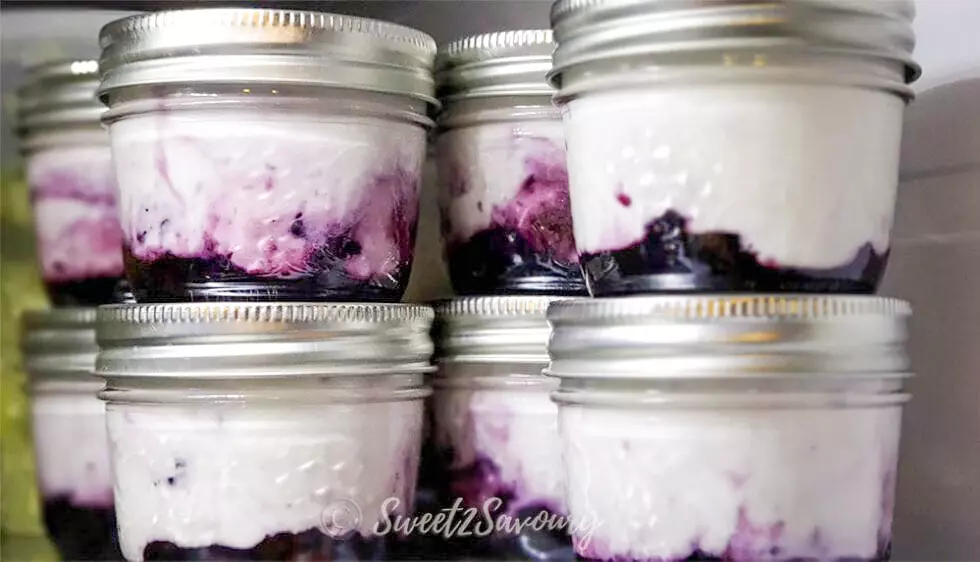

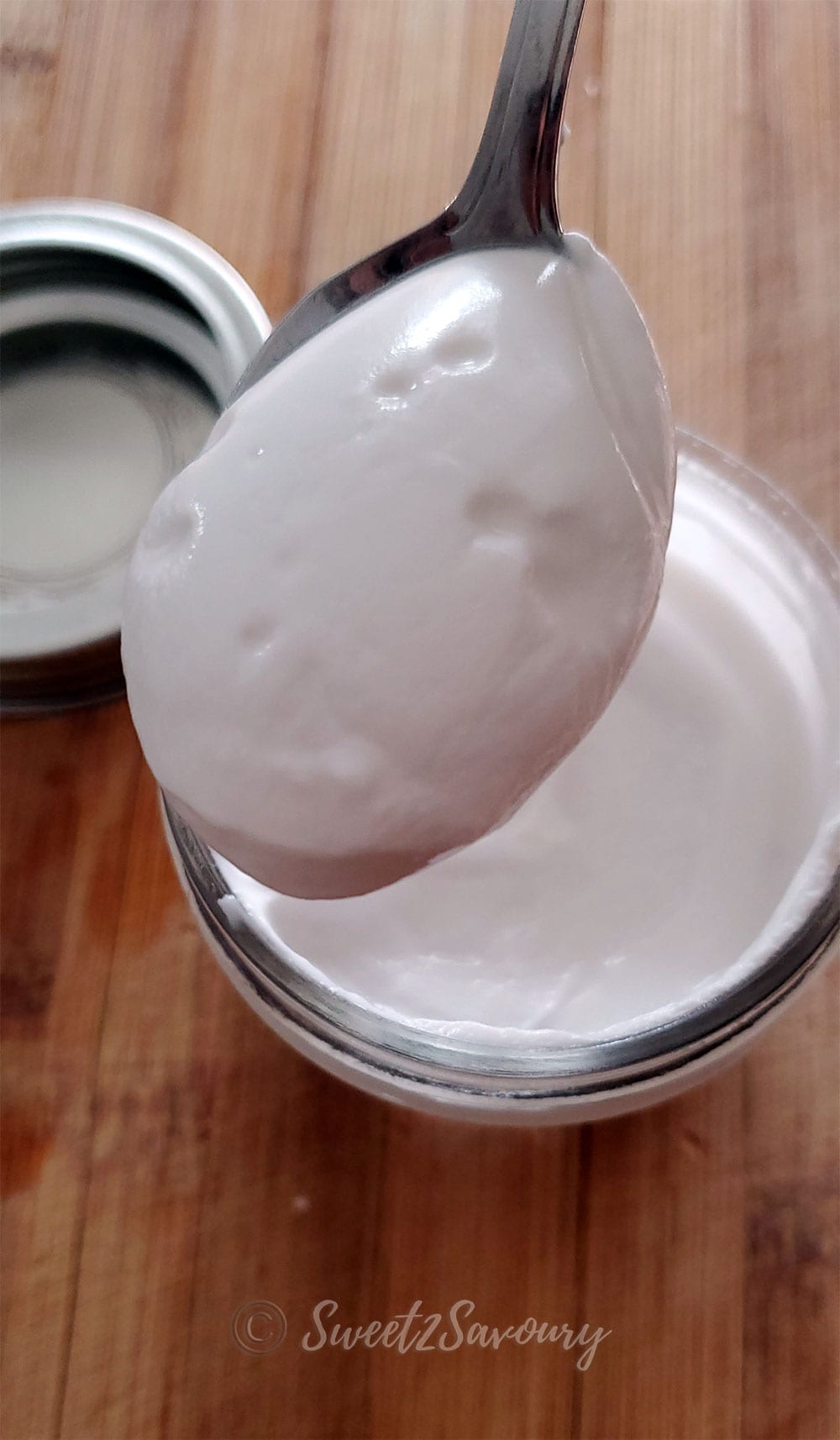
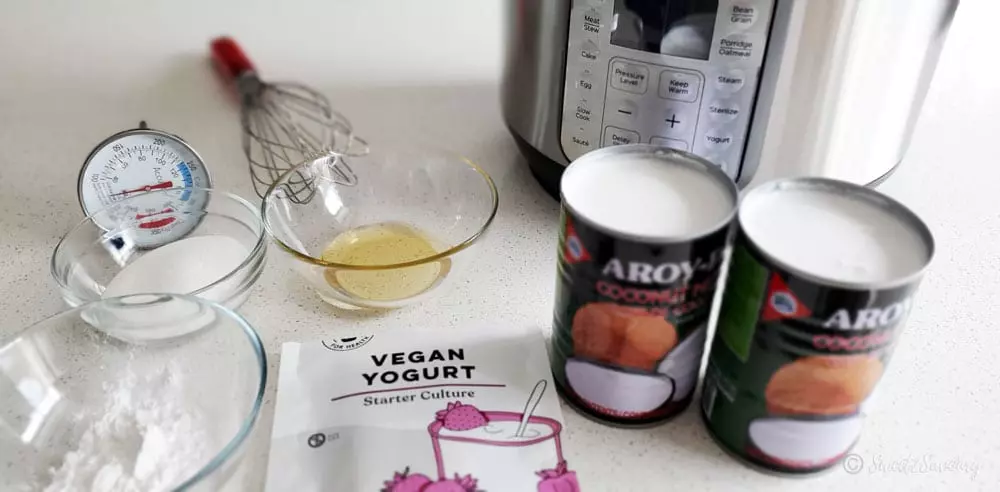
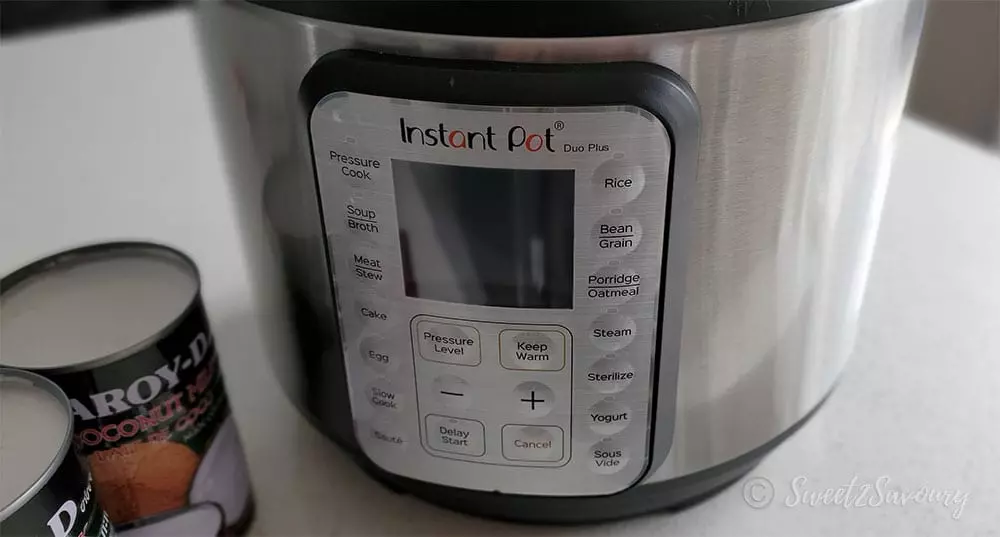
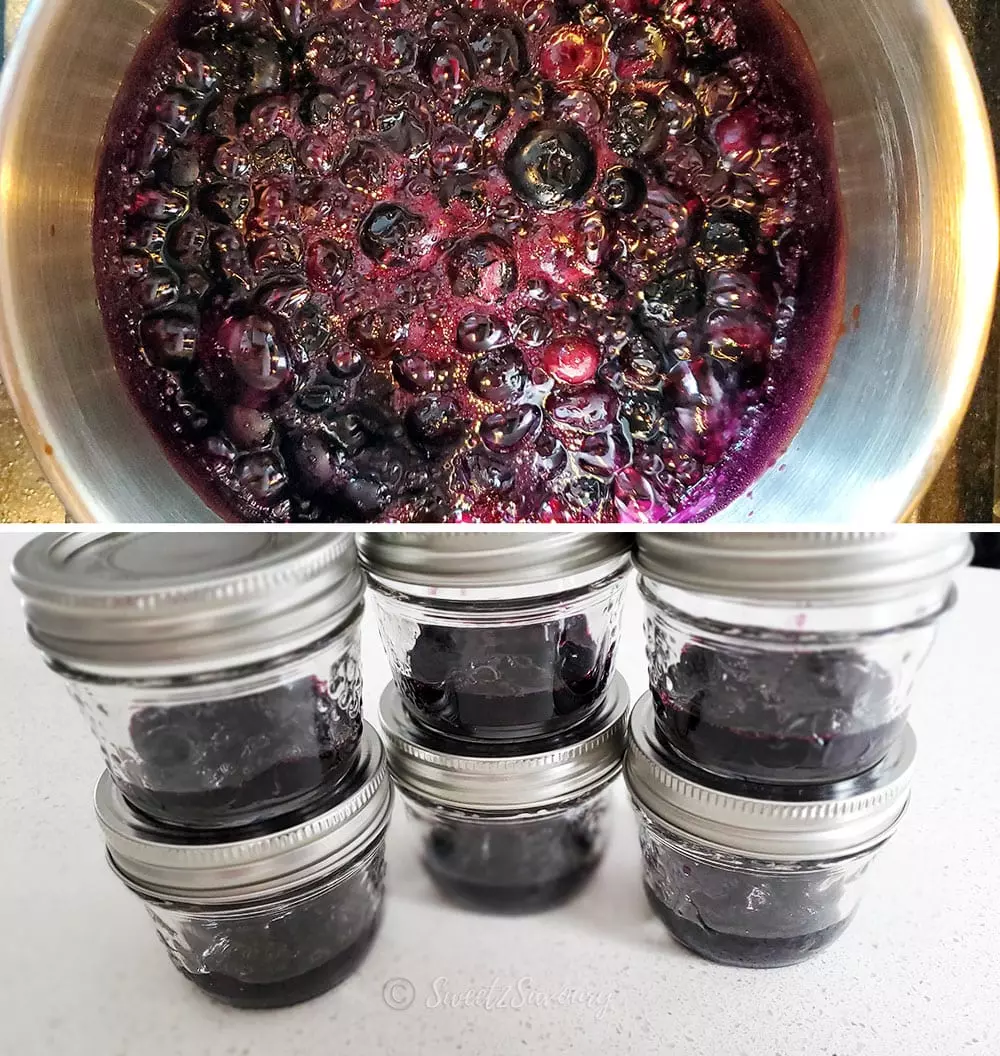
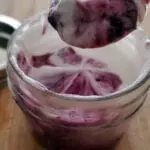

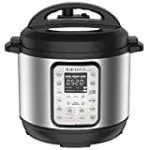
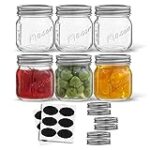

4 comments
Are their any fruits that you *wouldn’t recommend* for this recipe? Fruit that wouldn’t go with the coconut flavour? Excited to try this in my Instapot!
It comes down to personal preference. Having said that, I don’t suggest fruits that have a lot of water content such as water melon, honey dew, cantaloupe or citrus fruits like orange or mandarin orange. I would stick to berries, apples, pears, peach or nectarine. Have fun making it!
This looks delicious! I can’t wait to try this at home!
Let me know if you need any pointers! 🙂